From the Chicago Reader (October 28, 1994). Thirty years later, it’s hard to decide whether this stinker is as bad as Beatty’s Rules Don’t Apply or perhaps even worse. That some of the ads for Love Affair renamed it Perfect Love Affair sounds to me like an act of desperation. — J.R.
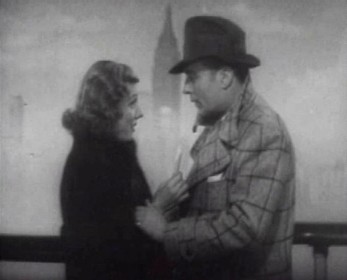

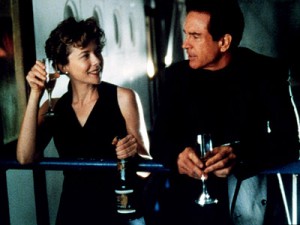
* LOVE AFFAIR
(Has redeeming facet)
Directed by Glenn Gordon Caron
Written by Robert Towne and Warren Beatty
With Beatty, Annette Bening, Katharine Hepburn, Garry Shandling, Chloe Webb, Pierce Brosnan, and Kate Capshaw.
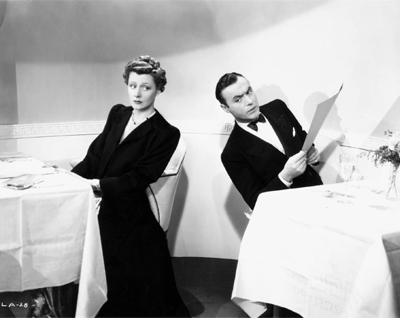
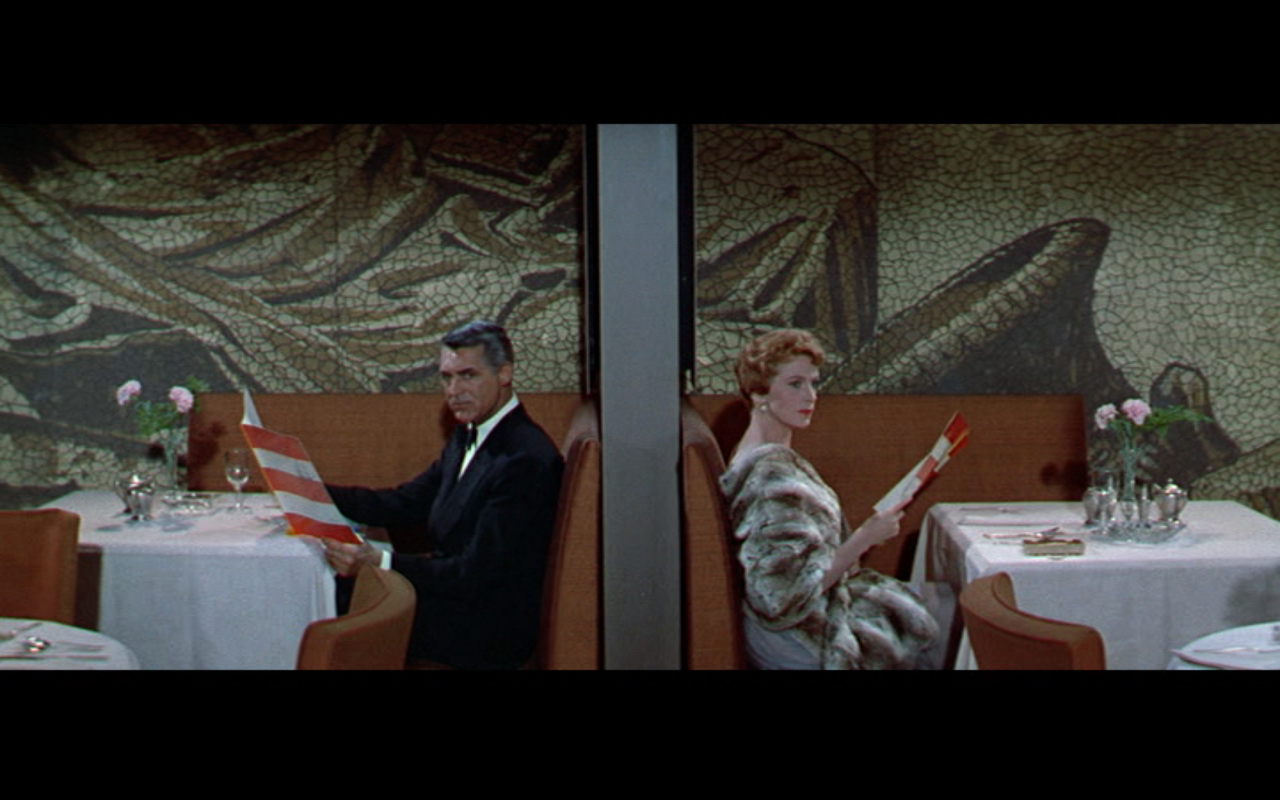
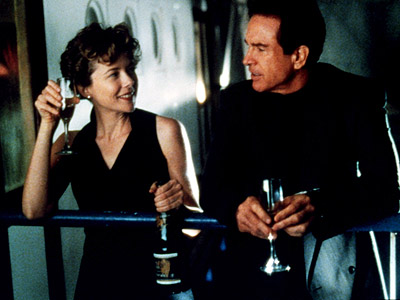
The writing and directing credits for Love Affair are legally correct but historically, aesthetically, and ethically wrong. A more accurate account of where the movie comes from, in terms of characters, plot, dialogue, and even camera placement, would have to cite the story written by Leo McCarey and Mildred Cram for Charles Boyer and Irene Dunne, inspired by an extended trip McCarey and his wife took to Europe. According to McCarey, seeing the Statue of Liberty slide into view as the ship approached the New York harbor gave birth to the plot: a man and a woman, each engaged to someone else, meet on such a liner, bound for Europe from New York, and fall in love. Read more
Written for Sight and Sound on August 15, 2015. Since writing this, I’ve discovered that free access to a subtitled version is now available at https://www.youtube.com/watch?v=09J-oSZF9G4. — J. R.
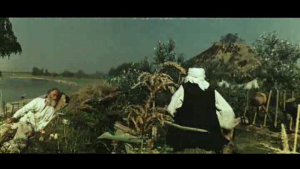
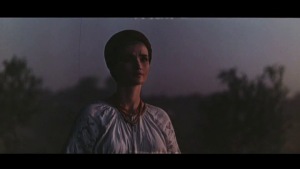
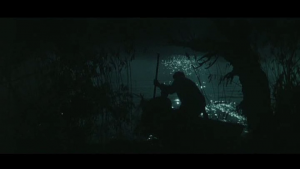
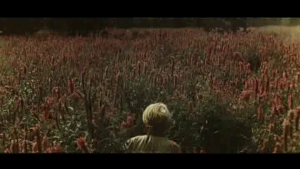
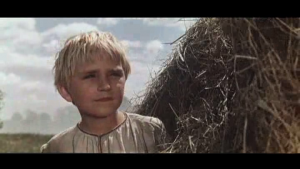
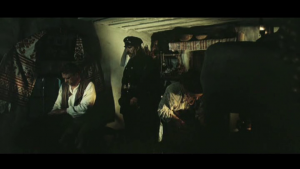
The Enchanted Desna (1964)
There are few masterpieces harder to access than this 70-millimeter, stereophonic poem by Moscow-born Yuliya Solntseva (1901-1989), widow of the great Alexander Dovzhenko, who devoted most of her filmmaking career, after playing the title role in Aelita (1924), to assisting her Ukrainian husband and then filming his unrealized projects after his death. I’ve never seen this subtitled, but Godard’s favorite film of 1965 was periodically screened at the Paris Cinémathèque over the following decade, and I’ve managed to fill in a few details by reading an English translation of Dovzhenko’s extended memoir of the same title. It’s a rambling but exalted account of his impoverished rural childhood, where, as in his best features, it becomes impossible to distinguish reality from fantasy or imagination, or pantheistic epic from a kind of music dreamt in images — a reciprocal dance performed by nature, family, and other eccentric local touchstones in perpetual, mysterious collaboration. (Jonathan Rosenbaum)
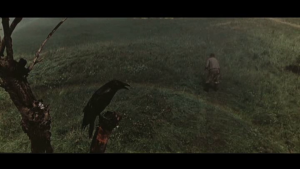
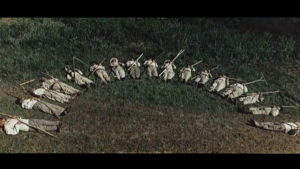
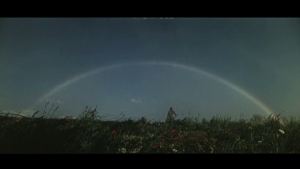
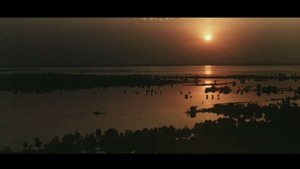
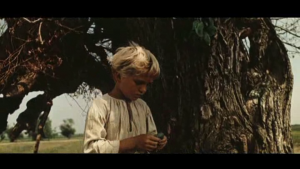
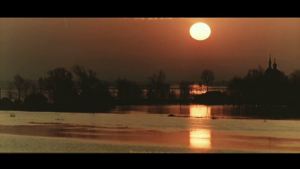
Read more
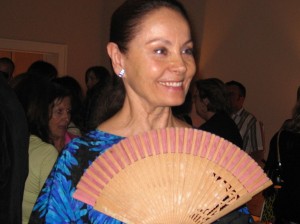
My 2015 interview with Oja Kodar in Woodstock, Illinois:
https://vimeo.com/149237341
PASSWORD: Woodstock
Note: A book collecting my other interviews, starting with one with Orson Welles — CINEMATIC ENCOUNTERS: INTERVIEWS AND DIALOGUES — was published by the University of Illinois Press in December 2018. And my essay about THE OTHER SIDE OF THE WIND concludes its companion volume, CINEMATIC ENCOUNTERS 2: PORTRAITS AND POLEMICS, published by the same press half a year later.
I’ve already posted this link on Facebook, but am reposting it here because I think everyone who cares about Orson Welles should see and hear it. — J.R. Read more
This originally appeared in Stop Smiling‘s “Hollywood Lost and Found” issue (2007); it’s also reprinted in my latest collection. — J.R.
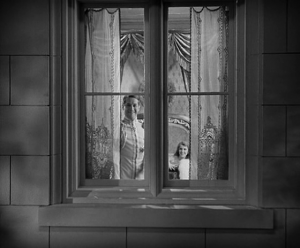
The camera cranes around the grand façade of a palace, a chateau, or a luxurious grand hotel, peering obliquely through the windows at the various doings inside. Or it stays perched in a hallway, outside a bedroom or a suite inside one of these buildings, while servants, musicians, or cigarette girls enter or leave, encouraging us to imagine what romantic shenanigans might be taking place on the other side of the door.
These are the two main signature shots of the great Hollywood filmmaker Ernst Lubitsch — especially during his Hollywood heyday, the 30s -— and one can also find variations of the second kind, the outside-the-door interiors, in the more romantic movies of Billy Wilder, Lubitsch’s major disciple, whose own Hollywood heyday was the 50s. In Lubitsch’s Ninotchka (1939), which Wilder and his frequent writing partner Charles Brackett helped to script, we’re made to understand how much three Russians in Paris (Sig Ruman, Felix Bressart, Alexander Granach) on a government mission are enjoying themselves in their hotel suite when they order up cigarettes, meaning three cigarette girls. Read more




















